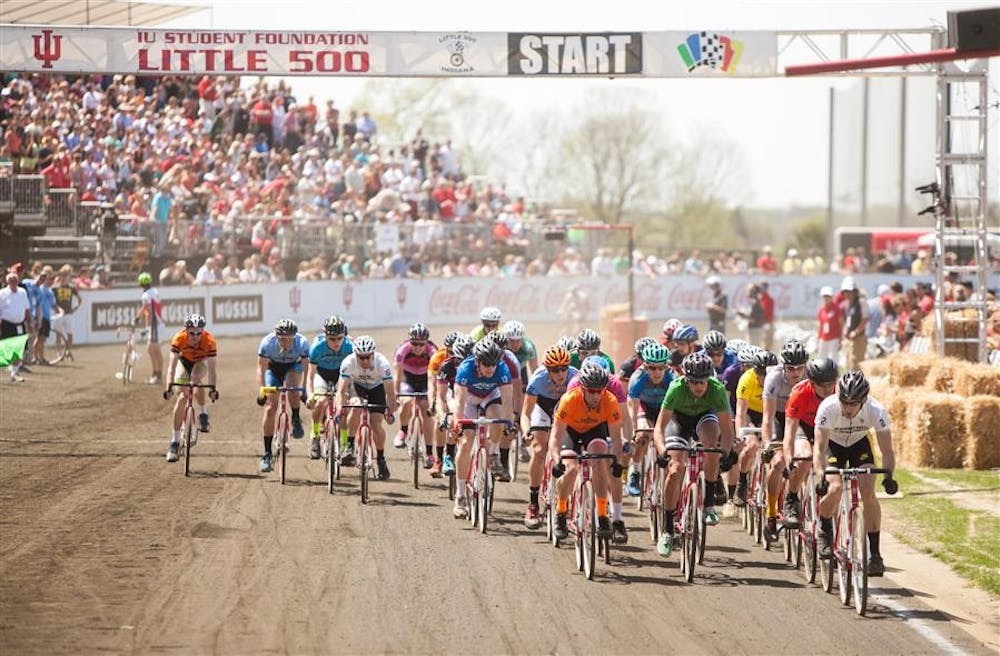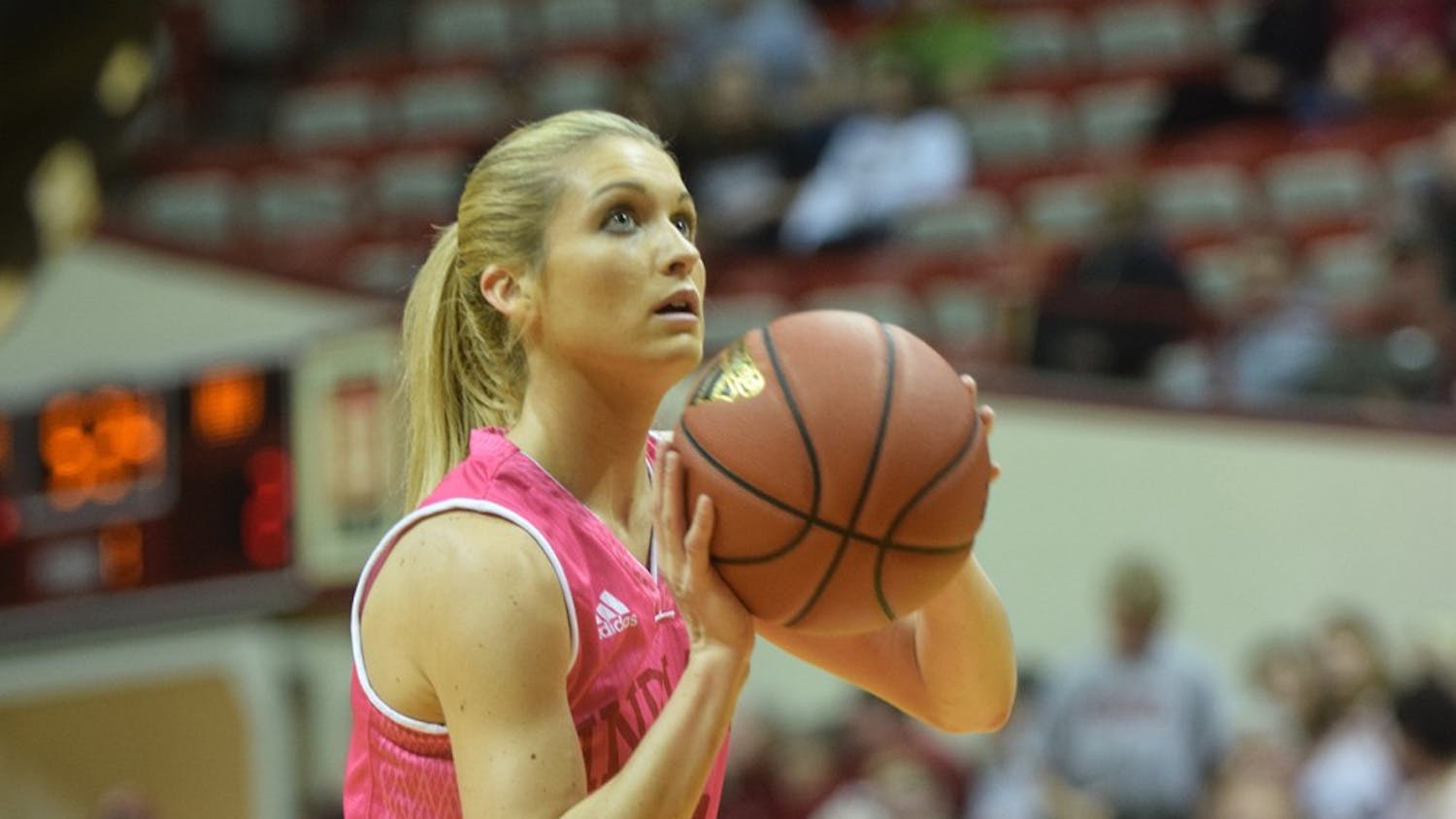It’s not just a bike race. It’s the Little 500.
Each spring, hundreds of students turn into athletes in the largest collegiate cycling race in the country, and the biggest intramural event at IU, when they ride in the Little 500.
Modeled after the motor race that takes place 56 miles away at the Indianapolis Motor Speedway, the Little 500 sends four-person teams around a quarter-mile track in separate races for men and women.
Howdy Wilcox, former executive director of the IU Student Foundation, founded the Little 500 race in 1951, 32 years after his father won the Indianapolis 500.
The race was featured in the 1979 movie “Breaking Away,” which tells the tale of an underdog team of locals who win the race.
In the film, the team acquires the nickname “Cutters” after the phrase was used as an insult to stone cutters who worked at Bloomington limestone quarries.
Similar to the traditions of kissing the sidewalk and drinking cold milk that accompany the Indy 500, the Little 500 is full of traditions, such as mounting Schwinns and crashing on Turn 3.
But it’s also an experience — one former Cutters rider Eric Young will never forget.
Young, a four-year rider for the historic team, crossed the finish line first during each of his four years riding in the Little 500 — a feat no other rider had achieved.
The Cutters rider had always planned to go to graduate school for neuroscience following his time in Bloomington. He had never heard of the Little 500 before, but four championships and one contract later, Young became a professional cyclist for Bissell cycling.
“I did not think I would be earning money to race until my senior year,” Young said. “I learned a lot from Little Five, a lot about teamwork and perseverance. It definitely defined my college experience.”
Coordinated by the IU Student Foundation, the Little 500 helps raise money for working student scholarships, and has raised more than $1.5 million in scholarships since its inception.
Though it is an intramural event, former student and Wing It Cycling rider Abigail Legg said most teams don’t treat it like one.
“We train about six days a week,” Legg said. “We change our diets around Little Five. We change our class schedules around Little Five.
“You’re part of something so much bigger than yourself, and much bigger than just a bike race in April.”






